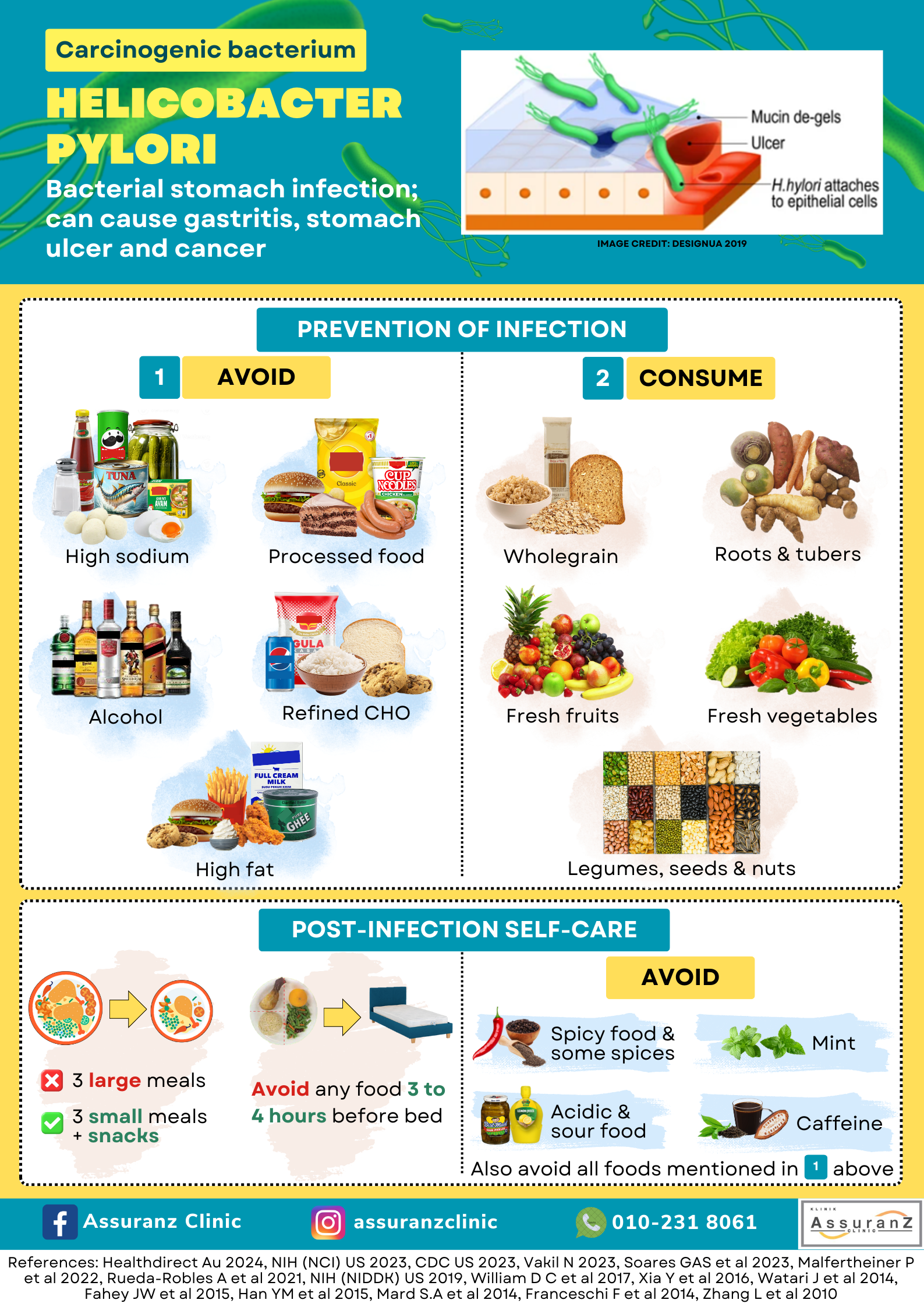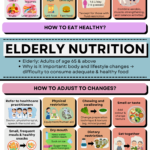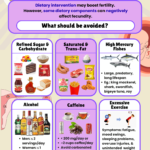Helicobacter pylori (H. pylori) is a spiral-shaped bacterium which can infect and invade the human’s stomach. Infection is common worldwide, with around two thirds of the world population known to be infected and is especially common in developing countries. This carcinogenic bacterium can cause negative changes in the gut microbiome and inflammation, which then may lead to gastritis, peptic ulcer and eventually gastric cancer, with 2 to 6 times cancer risk than non-infected. H. pylori infection also plays a role in functional dyspepsia, idiopathic or unexplained iron deficiency anemia and idiopathic thrombocytopenic purpura. Although many bacteria are not able to live in the stomach due to its acidic environment, H. pylori can neutralize the acidity by production of ammonia. Additionally, they can circumvent immune defense by penetrating through the mucus barrier of the stomach and attaching themselves to the cells of the stomach.
幽门螺旋杆菌(H. pylori)是一种可以感染和侵入人类胃部的螺旋状细菌。幽门螺旋杆菌的感染在世界范围内很普遍,约有三分之二的世界人口已知被感染,尤其在发展中国家更为常见。这个致癌细菌可能导致肠道微生物群负面变化和炎症,进而可能引发胃炎、消化性溃疡,最终可能发展为胃癌。这患癌症的风险是未感染者的2到6倍。幽门螺旋杆菌感染还与功能性消化不良、特发性或无法解释的缺铁性贫血以及特发性血小板减少性紫癜有关。尽管许多细菌因胃部的酸性环境而无法生存,但是螺旋杆菌却可以通过产生氨来中和酸性。此外,它们还能通过穿透胃部的粘液屏障并附着于胃壁细胞,从而绕过免疫防御。
H.pylori can be transmitted either through oral-to-oral route such as by food or utensils sharing, fecal-to-oral route such as contact with infected food-handler who did not wash their hands, and environment through contaminated water supply. Infection typically does not cause any symptoms, but possible symptoms include dyspepsia or indigestion, burning sensation in the upper stomach which may resolve upon eating, nausea and vomiting, bloating, belching, and appetite loss. Patients presenting with symptoms and complications should be diagnosed either by urea breath test, stool antigen test or endoscopic biopsy, and treated to eradicate the bacteria. Medical treatment includes various regimens of antibiotics together with a proton pump inhibitor.
幽门螺旋杆菌(H. pylori)的传播途径包括口对口传播,例如通过共用食物或餐具,粪口传播,接触未洗手的感染者处理的食物,以及通过受污染的水源传播。它的感染通常不会引起任何症状,但可能引发的症状包括消化不良、上腹部烧灼感(进食后可能会缓解)、恶心和呕吐、腹胀、打嗝以及食欲丧失。出现这些症状和并发症的患者应通过尿素呼气试验、粪便抗原测试或内镜活检进行诊断,并进行治疗以根除细菌。医疗治疗则包括各种抗生素方案与质子泵抑制剂的联合使用。
While infection can happen through the mentioned route, development, proliferation, risk and complication can be promoted or aggravated by gut microbiota and specific dietary patterns. To reduce the risk of infection, these are the recommended dietary changes:
虽然幽门螺旋杆菌的感染可以通过上述途径发生,但肠道微生物群和特定饮食模式可以促进或加重其发展、增殖、风险和并发症。为了降低感染风险,建议做出以下饮食调整:
- Avoid /避免:
- High salt – Example: pickled vegetables, salted fish, salted egg, condiments or sauces, processed food such as fish ball, flavorings such as MSG and cube stock.
高盐食物:例如腌制蔬菜、咸鱼、咸蛋、调料或酱料、加工食品(如鱼丸)、调味料(如味精和高汤块)。
- High refined carbohydrate – Example: white rice, white bread, sugary food and beverages such as soda, cakes and cookies.
高精制碳水化合物:例如白米、白面包、含糖食品和饮料(如汽水、蛋糕和饼干)。
- Heavy alcohol consumption – Example: wine, beer.
大量饮酒:例如葡萄酒、啤酒。
- High fat – Example: Deep fried food, creamy sauce such as mayonnaise, butter, ghee, lard, fatty meat, poultry skin, pastries, processed meat such as sausage and meatball.
高脂肪食物:例如油炸食品、奶油酱(如蛋黄酱)、黄油、酥油、猪油、肥肉、禽肉皮、糕点、加工肉制品(如香肠和肉丸)。
- High processed food – Example: Fast food, junk food, processed meat such as sausage and burger patties.
高加工食品:例如快餐、垃圾食品、加工肉制品(如香肠和汉堡饼)。
- Consume /摄入:
- Wholegrain /全谷物
- Fresh vegetables /新鲜蔬菜
- Fresh fruits /新鲜水果
- Legumes, nuts and seeds /豆类、坚果和种子
- Roots and tubers /根茎类食物
Once a person is infected and is undergoing treatment, dietary modifications should be done to ensure proper eradication of bacteria and recovery. These include:
一旦一个人感染了幽门螺旋杆菌并正在接受治疗,应该进行饮食调整,以确保细菌的有效根除和身体的恢复。这些调整包括:
- Consume small but frequent meals instead of large main meals
选择少量但频繁的餐食,而不是大份主餐
- Avoid food that can irritate the stomach (i.e. spicy food, some spices or condiments, caffeine, mint, carbonated drinks, and acidic or sour food)
避免刺激胃部的食物(例如:辛辣食物、某些香料或调味料、咖啡因、薄荷、碳酸饮料以及酸性或酸味食物)
- Avoid sugary food and beverages
避免含糖食物和饮料
- Avoid high fat and processed food
避免高脂肪和加工食品
- Avoid caffeinated food or beverages
避免含咖啡因的食物或饮料
- Avoid alcohol intake
避免饮酒
- Do not consume food 3 to 4 hours before bed
避免在睡前3至4小时内进食
Furthermore, H. pylori infection can cause micronutrient deficiency due to malabsorption, including vitamin C, vitamin A, α-tocopherol, vitamin B12, folic acid, and iron. Therefore, one should make sure to consume a balanced meal consisting of all essential nutrients to prevent further complications such as iron deficiency anemia.
此外,幽门螺旋杆菌感染会导致营养素的吸收不良,从而造成微量营养素缺乏,如维生素C、维生素A、α-生育酚(维生素E)、维生素B12、叶酸和铁质。因此,我们应确保摄入均衡的饮食,包括所有必需的营养素,以防止进一步的并发症,如缺铁性贫血。






